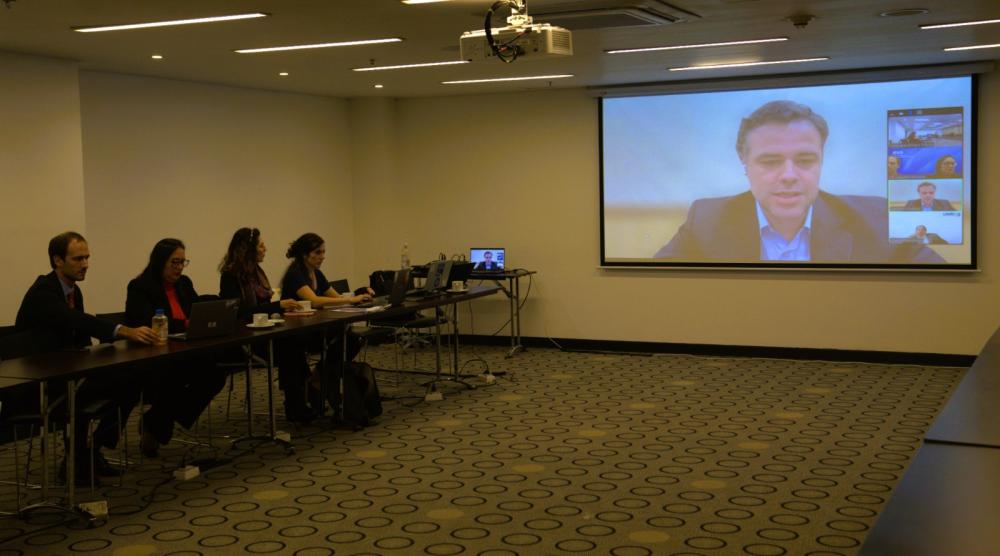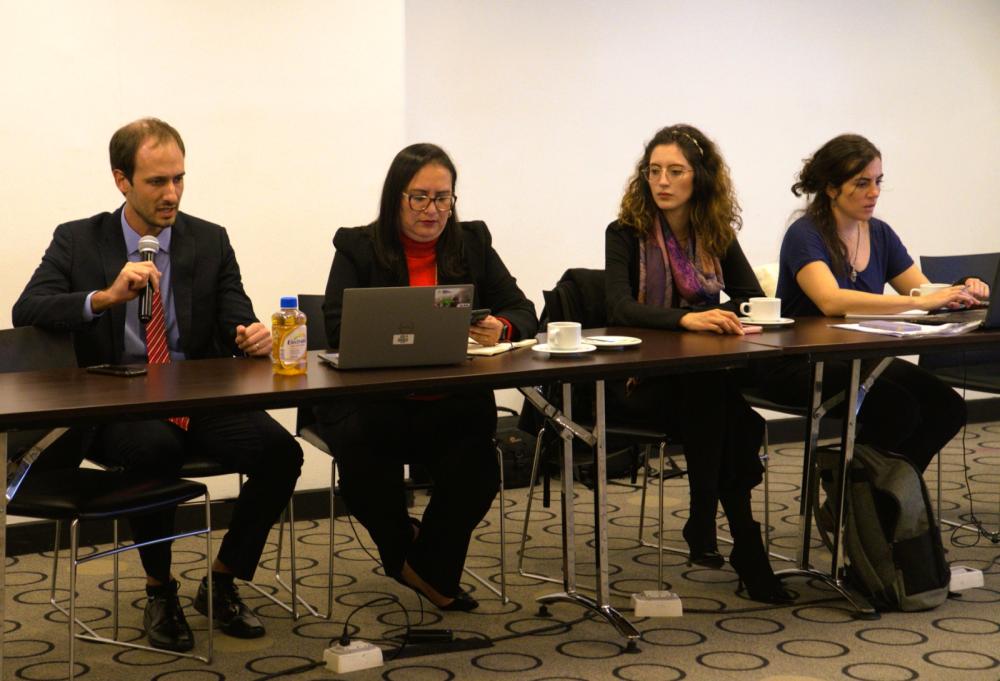The key stakeholders of the sustainable aviation fuel value chain come together to discuss the sector's opportunities and challenges

San José, 22 August 2024 (IICA) - The aviation sector plays a crucial role in mitigating the consequences of greenhouse gas emissions from human activity, since it accounts for between 2% and 3% of global CO2 emissions and 12% of emissions produced by the transportation sector.
Therefore, Sustainable Aviation Fuels (SAF) offer a promising solution—representing 65% of the available options—for decarbonizing the aviation sector.
This is because the sector is unique compared to other methods of transportation in its dependence on liquid fuels and the inability to implement new air mobility paradigms that could replace internal combustion.
The Americas could play a fundamental role in the SAF market, given the region’s high potential for expansion. This ranges from resource availability to a well-developed intermediate value chain through biofuels dedicated to the land transportation sector with certified sustainable practices. However, the market is still in the very early stages, and there is currently no local production.
For these reasons, a roundtable was convened in Bogotá, Colombia, to address the challenges, opportunities, and concrete proposals to drive this technology and production in the region.
The SAF roundtable included representatives from the Inter-American Institute for Cooperation on Agriculture (IICA), the Climate Champions Team (Race to Zero, Race to Resilience), the International Air Transport Association (IATA), the Latin American and Caribbean Air Transport Association (ALTA), the Latin American Energy Organization (OLADE), the Latin American Civil Aviation Commission (CLAC), and the Pan American Coalition of Liquid Biofuels (CPBIO).
The main objective was to bring together key stakeholders in the value chain of SAF production, commercialization, and use to identify challenges and suggest action plans to overcome current barriers and determine how to develop SAF in the region, with commitments that could be presented at the 30th Conference of the Parties on Climate Change (COP 30) to be held in Brazil next year.

First, it is important to note that there was broad consensus on the barriers to SAF development in the region. The primary challenge highlighted was the lack of regulatory harmonization and global sustainability standards. The second concern mentioned was the need for economic and fiscal incentives given the high costs of initial investment.
Secondly, as an emerging market without a consolidated regulatory framework, SAF faces high levels of uncertainty that hinder and slow down investments in the sector. This, combined with the difficulty of accessing financing and elevated costs, results in a lack of adequate facilities for SAF production and distribution, as well as insufficient technology for converting biomass or other resources into SAF.
Finally, there is a need for more trained resources with expertise in the subject, and more dissemination of the benefits and opportunities of SAF to achieve greater social consensus—a key driver for advancing this technology.
In this regard, it was emphasized that SAF can not only decarbonize air transportation but also facilitate the development of associated value chains, create sustainable jobs, and add value to agricultural production, while also providing an opportunity for energy independence.
Among the main future guidelines for fostering an efficient, transparent, and abundant SAF market, the focus of the discussion was the establishment and harmonization of global sustainability standards, as well as the need for common regional and national policies to promote production and consumption, ensuring the application of science-based, sustainable criteria, while maintaining neutrality in the use of raw materials and technologies.
For the region to reach its potential in developing a broad, robust, and sustainable SAF market efficiently, it is essential to leverage the comparative advantages of the Americas, ensuring that all actors in the supply and demand chains are involved, oriented in the same direction, and working toward a common goal.
“Today, there are more than 120 airports distributing SAF worldwide, but none in the region. There are more than 52 billion liters of SAF under purchase agreements, but only 1 million in Latin America. However, the region is blessed with an abundant, economical, and sustainable supply of raw materials and has already developed intermediate value chains, giving it enormous potential to create a massive SAF industry,” summarized Agustín Torroba, a biofuels specialist at IICA.
More information:
Institutional Communication Division.
comunicacion.institucional@iica.int